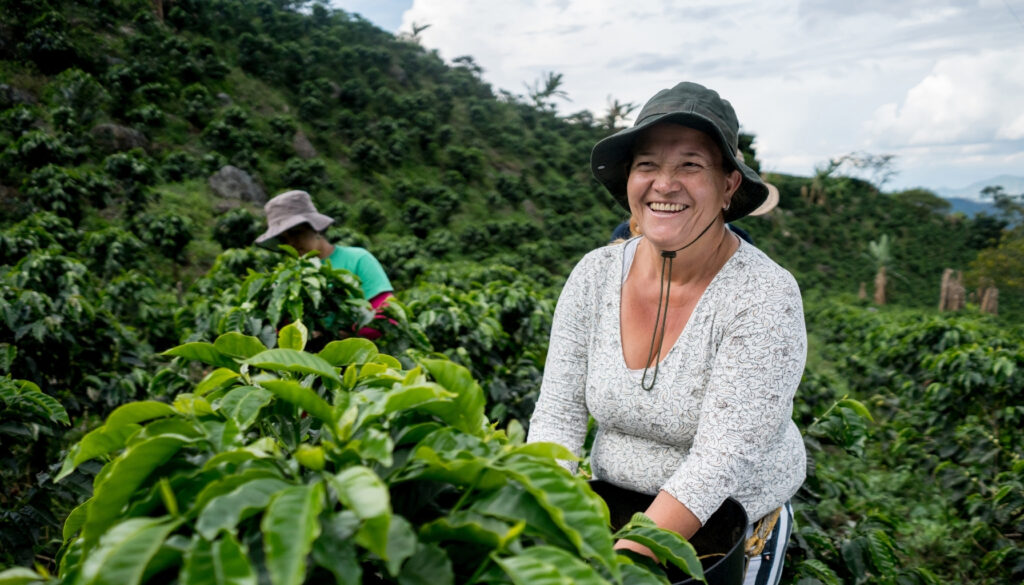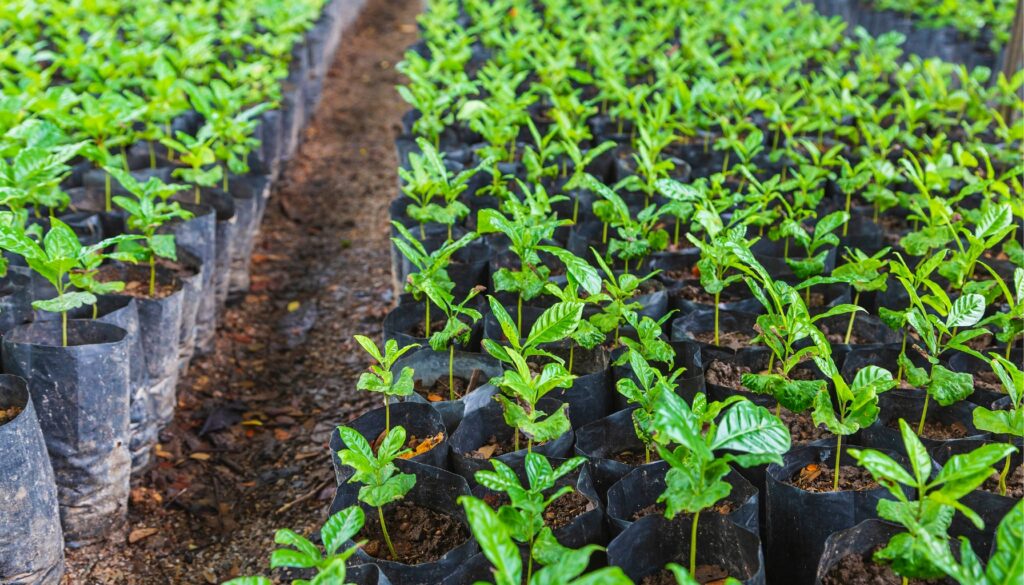Coffee is more than just a beverage; for many, it embodies a cultural experience, a ritual, and an indulgence in life’s finer pleasures. As the aroma of freshly brewed coffee wafts through the air, one cannot help but appreciate the artistry behind every cup. In this exploration of exclusive coffee farms around the world, we delve deep into the origins of some of the rarest coffee beans, meet the passionate farmers who cultivate them, and gain insights into their sustainable practices and commitment to quality. Join us on this journey to discover hidden gems in the coffee world that provide not only exceptional beans but also unique experiences that coffee connoisseurs cherish.
The Allure of Exclusive Coffee Farms
In the realm of coffee, exclusivity is synonymous with rarity, quality, and craftsmanship. Exclusive coffee farms stand out not just for the beans they produce but also for their dedication to sustainable practices and the unique stories behind their operations. Each farm offers a glimpse into the artistry of coffee cultivation. From the elevation at which the beans grow to the meticulous methods employed in harvesting, each detail contributes to the final product.
The very definition of an “exclusive” coffee farm often includes factors such as limited production runs, unique bean varietals, and the ability to control quality from bean to cup. Many of these farms implement sustainable practices that honor the environment and local communities, ensuring a holistic approach to coffee production. They cultivate relationships with their workers and customers alike, weaving a tapestry of passion and dedication into every bag of beans they produce.
Why Sustainability Matters
Sustainability plays a crucial role in the coffee industry today. Coffee cultivation can significantly impact the environment if not managed properly. Consequently, exclusive coffee farms prioritize techniques that minimize their ecological footprint while enhancing the quality of their beans. These practices often include shade-grown coffee, organic farming methods, and careful water management.
Additionally, sustainable practices help ensure that the coffee produced is not only of high quality but also ethically sourced. Many coffee consumers are becoming increasingly aware of where their coffee comes from, which means that farms adopting sustainable methods often enjoy a competitive edge in the marketplace. By choosing to support these farms, consumers contribute to a larger movement toward ethical consumption.
El Salvador: Finca San Jose
Nestled in the lush highlands of El Salvador, Finca San Jose showcases the harmonious relationship between nature and coffee cultivation. This exclusive farm focuses on sustainability, nurturing both the land and its people. The farm’s commitment to biodiversity is evident as it preserves various plant species alongside coffee, fostering a habitat for local wildlife.
At Finca San Jose, the farmers cultivate the rare Pacamara bean, known for its vibrant flavors and limited supply. Unlike traditional beans, Pacamara results from a cross between the Pacas and Maragogipe varietals. The farmers employ a meticulous hand-picking method, ensuring that only the ripest cherries undergo processing. This technique preserves the integrity of the beans, allowing for an explosion of flavors in each cup.
Visiting Finca San Jose offers an immersive experience for coffee lovers. Tours include the opportunity to participate in the harvest, providing an intimate understanding of the labor that goes into producing high-quality coffee. The farm also emphasizes educational programs, teaching sustainable practices to neighboring communities to foster a love for coffee and protect the environment.
The Pacamara Experience
What makes Pacamara beans so special? The unique flavor profile offers a delightful combination of chocolate, fruit, and floral notes. With its lower acidity, coffee lovers find it smooth and approachable, making it ideal for both traditional brewing methods and more innovative coffee cocktails.
Furthermore, the careful processing techniques used at Finca San Jose ensure that each cup delivers the full spectrum of flavors that the Pacamara can offer. This commitment to quality is a testament to the farmers’ passion for their craft.
Colombia: Hacienda La Esmeralda
For those seeking an exceptional coffee experience, Hacienda La Esmeralda in Panama is a name that resonates. Known for its exquisite Geisha beans, this farm has garnered international acclaim, earning awards for its unique flavor profiles. The Geisha varietal, originally from Ethiopia, flourishes in the volcanic soils of the Boquete region, resulting in coffee that boasts floral and fruity notes.
Hacienda La Esmeralda stands out not only for the quality of its beans but also for its ethereal coffee tasting experiences. Visitors can participate in cupping sessions, guided by expert coffee tasters who share their insights into the nuances of each brew. The estate’s commitment to quality is unwavering; they sort their coffee beans meticulously to ensure that only the finest make it to market. A visit to this exclusive farm combines luxury with an education in one of the world’s most coveted coffee varietals.
The Geisha Phenomenon
The Geisha bean has become a phenomenon in the coffee world, often fetching high prices at auctions. Its complex flavor profile includes sweet notes of jasmine and tropical fruits, along with a distinct tea-like quality that sets it apart from other coffees.
Moreover, Hacienda La Esmeralda takes great care to preserve the purity of the Geisha varietal. By controlling the growing conditions and employing best practices in processing, they ensure a product that consistently meets the highest standards. As a result, coffee enthusiasts flock to this exclusive farm to experience the flavors of Geisha firsthand.
Ethiopia: Yirgacheffe Coffee Farmers Cooperative
No exploration of exclusive coffee farms would be complete without mentioning Ethiopia, the birthplace of coffee. The Yirgacheffe region is home to several smallholder farmers who cultivate some of the most distinct coffee beans globally. The Yirgacheffe Coffee Farmers Cooperative Union encompasses hundreds of members, all dedicated to producing high-quality Arabica coffee.
Farmers in this cooperative practice traditional methods alongside modern sustainable techniques. They hand-pick their cherries at peak ripeness, ensuring a flavor that reflects the unique terroir of the Yirgacheffe region. Because of this dedication, Ethiopian Yirgacheffe coffee has become synonymous with bright acidity and complex flavor profiles, often featuring notes of jasmine, citrus, and berry.
Visitors to the Yirgacheffe region can engage in immersive experiences that highlight the coffee-making process. Participating in the local harvesting, processing, and even tasting sessions allows coffee enthusiasts to appreciate the dedication behind each cup. The cooperative model also empowers farmers, providing them with fair pricing for their crops while ensuring environmental sustainability.
The Community Impact
The success of the Yirgacheffe Coffee Farmers Cooperative extends beyond exceptional beans. It creates a framework that empowers local farmers, allowing them to invest in their communities and improve their livelihoods. By participating in the cooperative, farmers gain access to better resources, training, and financial stability.
Moreover, the cooperative system fosters a sense of community among farmers. They work together to share knowledge, improve practices, and uphold quality standards. This collaboration illustrates how exclusive coffee farms can lead to both outstanding coffee and community development.
Costa Rica: Finca Rosa Blanca
Nestled in the Central Valley of Costa Rica, Finca Rosa Blanca is a family-owned coffee farm that perfectly embodies luxury and sustainability. This exclusive coffee farm not only focuses on producing top-quality beans but also offers an eco-luxury experience for its visitors. The farm practices organic farming techniques and employs biodiversity strategies to enrich the ecosystem.
Finca Rosa Blanca produces various coffee varietals, including the exquisite Caturra and Catuai. Each bean is hand-picked and carefully processed to highlight its inherent flavors. What sets this farm apart is the unique opportunity it offers to visitors: coffee tours that combine plantation walks with gourmet culinary experiences. Guests can savor their freshly brewed coffee while enjoying local cuisine, all sourced from the farm’s garden.
The Culinary Connection
Finca Rosa Blanca takes pride in creating a farm-to-table experience for its guests. Every aspect of the culinary offerings is designed to showcase the rich flavors of Costa Rican ingredients.
In addition to coffee, visitors can indulge in delicious tropical fruits and traditional dishes that pay homage to the region’s culinary heritage. This integration of coffee and cuisine not only enhances the tasting experience but also reinforces the connection between agriculture and gastronomy.
Hawaii: Kona Coffee Farms
Hawaii proudly boasts some of the most exclusive coffee farms in the world, particularly in the famous Kona region on the Big Island. Known for its balmy climate and volcanic soil, Kona produces some of the most sought-after coffee beans. Kona coffee is renowned for its smooth, rich flavor and low acidity, making it a favorite among coffee aficionados.
One of the premier coffee farms in this region is the Kona Coffee Estate. Here, farmers apply careful cultivation methods that respect traditional practices while incorporating sustainable techniques. The estate’s commitment to quality ensures that each coffee bean is hand-picked and processed to retain its exquisite flavor.
Visitors to the Kona Coffee Estate can engage in coffee tastings and tours that showcase the entire coffee production process. The experience includes learning about the unique growing conditions in Hawaii and the meticulous steps that go into crafting high-quality coffee. Sipping Kona coffee while surrounded by breathtaking views of the mountains and ocean creates an unforgettable experience.
The Unique Growing Conditions
Kona coffee benefits from a unique combination of climate and terrain. The rich, volcanic soil and ideal rainfall create conditions that are perfect for coffee cultivation. Furthermore, the elevation of the Kona region contributes to slower maturation of the coffee cherries, enhancing their flavor profile.
As a result of these unique conditions, Kona coffee boasts flavor notes that range from nutty and chocolatey to fruity and floral. For those who appreciate a well-crafted cup of coffee, Kona coffee farms offer an experience that is hard to match.
Brazil: Fazenda Santa Ines
Brazil remains the largest coffee producer in the world, and Fazenda Santa Ines stands as an example of the country’s commitment to quality. Located in the Minas Gerais region, this farm specializes in high-quality specialty coffee. Fazenda Santa Ines is known for its unique processing methods, including the innovative honey process, which enhances the beans’ sweetness and body.
The farm prioritizes sustainability, employing practices that minimize environmental impact while maximizing flavor. Visitors to Fazenda Santa Ines can take part in guided tours that highlight the coffee cultivation process and the importance of sustainability in coffee production. Guests often leave with a deeper understanding of the complexities involved in producing high-quality coffee and the art that accompanies it.
The Honey Process Explained
The honey processing technique involves leaving some of the mucilage on the coffee cherry during the drying process. This results in a sweeter cup with more body, showcasing the natural sugar present in the fruit.
As Fazenda Santa Ines utilizes this method, coffee lovers can explore a range of flavors, from sweet and fruity to rich and complex. The diversity of taste profiles emphasizes the art of coffee production, making it an essential stop for those keen to learn about innovative processing techniques.
The Heart of Coffee: Sustainability and Ethics
As we traverse the globe visiting exclusive coffee farms, one of the common themes binding these experiences together is the emphasis on sustainability and ethical practices. These farms recognize their role in the broader ecosystem and often implement methods that respect the environment and support local communities. Through sustainable farming, they preserve biodiversity, enhance soil health, and reduce their carbon footprint.
Many of these farms also prioritize fair trade principles, ensuring that farmers receive fair compensation for their labor. This commitment fosters community development and empowers farmers to invest in their farms and families. By engaging with these exclusive coffee farms, consumers not only enjoy superior coffee but also contribute to a more equitable coffee industry.
The Ripple Effect of Ethical Sourcing
Choosing to support exclusive coffee farms engaged in ethical practices creates a ripple effect. Every purchase from these farms contributes to improving living conditions for farmers and their families.
Moreover, this ethical approach helps raise awareness about the importance of sustainable coffee production. As consumers become more informed, they demand greater transparency in sourcing, prompting even more farms to adopt ethical practices. This shift ultimately benefits everyone involved in the coffee supply chain.
Exploring Different Coffee Varietals
The world of coffee is vast and rich with diverse varietals that reflect the unique characteristics of the regions where they are grown. Exploring the various types of coffee beans can enrich your appreciation for this globally cherished beverage. Each varietal brings its own set of attributes, flavors, and aromas that make them distinctive.
Arabica vs. Robusta
Understanding the two primary types of coffee beans, Arabica and Robusta, is essential for any coffee enthusiast. Arabica beans are often regarded as superior due to their smoother, more complex flavor profiles. They typically thrive in higher altitudes and tend to be more delicate, making them a preferred choice among specialty coffee growers.
In contrast, Robusta beans have a stronger, more bitter flavor and are known for their higher caffeine content. They are hardier plants, capable of thriving in lower altitudes, and are often used in espresso blends for their rich crema and body.
Unique Varietals
Within the Arabica category, many unique varietals exist that are worth exploring. For instance, Bourbon and Typica are two of the oldest coffee varietals, each offering unique flavor notes and characteristics.
- Bourbon: Known for its sweetness and complexity, Bourbon coffee often presents flavor notes of chocolate, caramel, and well-rounded acidity. This varietal thrives in Central and South America.
- Typica: This varietal offers a balanced flavor profile and is the foundation from which many other varietals arise. It is characterized by its smoothness and sweetness, often having floral notes.
The Importance of Terroir
As you explore various coffee varietals, it becomes evident that terroir plays a significant role in shaping a coffee’s flavor. Terroir refers to the environmental factors that influence a crop, including soil composition, altitude, temperature, and rainfall. Just as wine varietals reflect the terroir of their growing regions, coffee beans express the characteristics of their environment.
For instance, coffee grown at higher elevations tends to develop more complex flavors and higher acidity. This complexity is often found in coffees from regions such as Ethiopia and Colombia, where elevation contributes to the nuanced profiles that aficionados adore.
Crafting Your Coffee Experience
As you embark on your coffee journey, consider how different varietals and growing conditions affect your coffee experience. Participating in tastings, cupping events, and farm tours allows you to encounter the diverse flavors of coffee first-hand. Each cup can reveal the intricate story behind its origin, enhancing your appreciation for this beloved beverage.
The Journey Beyond the Bean: Coffee Processing Techniques
Once the coffee cherries are harvested, the journey is only just beginning. The processing methods employed after harvest are crucial in determining the final flavor profile of the coffee. Several techniques, each with its own unique characteristics, are used worldwide.
Washed Process
The washed process, also known as the wet process, involves removing the cherry’s outer fruit before fermenting the beans. This technique often results in a cleaner, brighter cup with pronounced acidity and clarity. Many specialty coffee farms favor this method to highlight the inherent flavors of the bean.
Natural Process
In contrast, the natural process involves leaving the cherry intact while it dries in the sun. This method imparts fruity, complex flavors to the beans, resulting in a fuller-bodied coffee with notable sweetness. Natural processed coffees are often characterized by their vibrant fruit flavors and can be a favorite for those seeking unique and bold profiles.
Honey Process
As discussed with Fazenda Santa Ines, the honey process is a hybrid technique that combines elements of both washed and natural methods. By retaining some of the mucilage on the beans during drying, this method enhances sweetness and complexity. The resulting coffees often exhibit flavors ranging from fruity to syrupy, making them intriguing choices for coffee lovers.
The Impact of Processing on Flavor
Understanding how processing techniques influence the flavor of coffee can elevate your coffee tasting experience. Each method adds layers of complexity that can transform a simple cup into an extraordinary journey of flavor.
Coffee Culture Around the World
Coffee is not just a drink; it is a cultural cornerstone for communities across the globe. Each region boasts its own coffee culture, traditions, and rituals that reflect the significance of this beverage in their daily lives.
Italian Espresso Culture
Italy’s coffee culture revolves around the espresso, a concentrated form of coffee that has become synonymous with Italian hospitality. Italians enjoy their espresso in small cups, often standing at the bar rather than sitting for long periods. The ritual of preparing and enjoying espresso is an art form, emphasizing quality and tradition.
Ethiopian Coffee Ceremony
Ethiopia, the birthplace of coffee, boasts a unique coffee ceremony that emphasizes community and sharing. This elaborate process involves roasting green beans, grinding them, and brewing coffee in a special pot called a jebena. The ceremony often includes multiple rounds of coffee, each served with snacks, fostering a sense of togetherness among participants.
Scandinavian Coffee Trends
In Scandinavia, the concept of “fika” represents a social coffee break that encourages relaxation and conversation. Specialty coffee shops thrive in cities like Stockholm and Oslo, where quality brews are enjoyed alongside pastries and light bites. The focus on sustainability and ethical sourcing resonates strongly within Scandinavian coffee culture.
Sustainable Coffee Choices for Consumers
As consumers, you hold the power to influence the coffee industry through your choices. By supporting exclusive coffee farms that prioritize sustainability and ethical practices, you contribute to a brighter future for coffee production.
Opt for Certified Coffee
Look for certifications such as Fair Trade or Rainforest Alliance when purchasing coffee. These seals ensure that the coffee you consume has been produced sustainably while providing fair compensation to farmers.
Explore Local Roasters
Supporting local roasters can lead you to discover unique, high-quality coffees while supporting your community. Many local roasters emphasize sustainable sourcing and offer small-batch options that showcase specific flavors and profiles.
Educate Yourself
Engage with the coffee community


